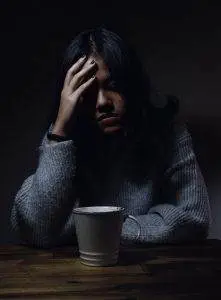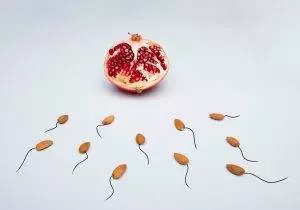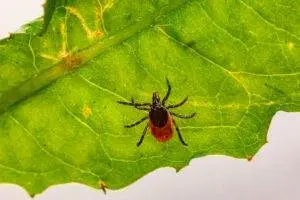-
 Art of Wellness Acupuncture & Traditional Chinese Medicine (TCM)11704 Wilshire Blvd, Suite 295, Los Angeles, CA, 90025
Art of Wellness Acupuncture & Traditional Chinese Medicine (TCM)11704 Wilshire Blvd, Suite 295, Los Angeles, CA, 90025
myartofwellness@gmail.com310-451-5522 Office Hours
MonClosedTue7:30 am --4 pmWed7:30 am --4 pmThu7:30 am -- 4 pmFri7:30 am -- 4 pmSat7:30 am -- 4 pmSunClosedOur office opens from Tuesdays to Saturdays 7:30 am to 4 pm, will be closed on Memorial day, Independent day, Labor day, Thanksgiving day, Christmas and New year.
-
Recent Posts
- How to Treat De Quervain’s Tenosynovitis With Acupuncture and TCM
- Chinese New Year 2026: Year of the Horse
- Acupuncture and TCM Treatment for Perimenopause Symptoms
- How to Treat Insulin Resistance With Acupuncture and TCM
- How to Treat Metabolic Syndrome With Acupuncture and TCM
- How to Treat Syncope With Acupuncture and TCM
- How to Treat Thoracic Outlet Syndrome With Acupuncture and TCM
- How to Treat Dupuytren’s Contracture With Acupuncture and TCM
- How to Treat Nutcracker Syndrome With Acupuncture and TCM
- How to Treat Rosacea With Acupuncture and TCM
- How to Treat Perioral Dermatitis With Acupuncture and TCM
- Lymphatic Drainage With Acupuncture and TCM
- How to Treat Turf Toe With Acupuncture
- How to Treat Nerve Pain With Acupuncture and TCM
- How to Treat Watery Eyes With Acupuncture and TCM
- How to Treat Ovarian Cysts With Acupuncture and TCM
- Sign up to receive news and updates and get my free report:“The Top 10 Reasons to Try Acupuncture”

December 2025 M T W T F S S 1 2 3 4 5 6 7 8 9 10 11 12 13 14 15 16 17 18 19 20 21 22 23 24 25 26 27 28 29 30 31
Autoimmune Disease
How to Treat Celiac Disease With Acupuncture and TCM
By Qineng Tan, L.Ac., Ph.D. & Xiaomei Cai, L.Ac., Ph.D.

Do you have digestive problems like a bloated stomach, diarrhea, and abdominal pain? Unintentional weight loss, fatigue, skin rashes? These can all be signs of Celiac disease. Different from food allergies, Celiac is a serious autoimmune disorder that can lead to malnutrition and other debilitating health problems. TCM herbs and acupuncture treatment offer a good alternative way of managing Celiac disease and gluten intolerance symptoms.
In recent years, you have probably heard a lot of people saying they are switching to a gluten free diet because they have a gluten allergy or gluten intolerance. Sometimes people may just be trying to see if they feel better when they cut out wheat products, or they are going on a low carb diet to help them lose weight. Other people may be experiencing symptoms like diarrhea and nausea and hope that going on an IBS diet will help.
What is gluten? Gluten is a protein that is present in some grains, including wheat, barley, and rye. When a person has Celiac disease, gluten is perceived by the immune system as a dangerous foreign substance, triggering an immune response. Antibodies (white blood cells) are produced as a reaction to gluten entering the body, and the antibodies end up causing inflammation and damage to the inside of the intestinal tract.
This damage to the small intestine is called villous atrophy, and this is what causes inflammation and malabsorption of nutrients, leading to the myriad symptoms of Celiac. Celiac symptoms vary widely, and can include both digestive problems, and other conditions, like anemia, that stem from the lack of proper nourishment to the body.

There is such a thing as a true wheat allergy, which for some people causes respiratory problems like difficulty breathing and nasal congestion, and other allergy symptoms like swelling and itching around the mouth and throat, hives or other itchy skin rashes, and headaches. Wheat allergies are a response to chemical compounds in wheat, which is found in a wide variety of food products. In some cases, exposure to wheat can cause anaphylaxis, which requires emergency medical attention because it can involve trouble breathing and swallowing, chest tightening, throat swelling, dizziness, and fainting.
Some doctors now recognize gluten intolerance or non-celiac gluten sensitivity as a separate condition from Celiac disease. For some people, gluten causes an immune response and symptoms, but not the same kind of damage to the intestines that Celiac does. If gluten intolerance is suspected, then following a gluten free diet for a period of time and noticing if symptoms clear up is usually the recommended course of action.
Celiac disease tends to run in families, and so is considered to be passed genetically. People can begin to show signs of Celiac at any age. It is estimated that at least 1% of the population has Celiac disease, but that number may be significantly higher, as it is still not a very well understood condition. Many people who have Celiac disease are unaware of it, or have been misdiagnosed with other conditions. Researchers believe that the incidence of Celiac disease is increasing worldwide, probably due to some environmental factors.
Acupuncture and TCM herbs provide a holistic way to treat Celiac disease, relieving the painful symptoms and providing detailed guidance for lifestyle and dietary changes that can help people manage Celiac and gluten intolerance. Nutrition is considered to be one of the primary branches of TCM, along with acupuncture and herbs. A TCM practitioner will be able to give you dietary recommendations far beyond just telling you to eat gluten free foods.
Top 10 Celiac Disease Symptoms
People can experience a variety of gluten intolerance symptoms, including digestive problems, allergy symptoms like skin rash, and other symptoms related to nutritional deficiency, like anemia and weight loss. Signs of gluten intolerance may be different in children, who are more susceptible to malnourishment that can lead to a failure to thrive.

Celiac symptoms include:
- Fatigue
- Weight loss
- Diarrhea, pale colored stools, foul-smelling, fatty, greasy stool
- Abdominal bloating, bloated stomach, gas, stomach pain, abdominal pain
- Nausea, vomiting
- Constipation
- Headache, headaches, migraines, migraine headaches
- Skin rash, mouth ulcers, mouth sores, canker sores
- Neuropathy, numbness or tingling in hands and feet, problems with balance, joint pain
- Cognitive problems, foggy head, difficulty concentrating
Celiac can lead to SIBO, anemia, iron deficiency, loss of bone density (osteoporosis), weak bones, soft bones, bone loss (osteopenia), joint pain, or arthritis. People can also have liver problems, including fatty liver.
Dermatitis herpetiformis is a specific type of skin rash that causes itching and blisters to appear, primarily on the knees, elbows, torso, top of the head, and buttocks.
Women may find that celiac disease affects their hormones, menstrual periods, and can have an impact on fertility, even causing recurrent miscarriages.
Celiac disease can also contribute to infertility and low sperm count in men.
When a child develops celiac disease, the inability to absorb nutrients from food can cause problems with normal growth, such as short stature, delayed puberty, and damage to tooth enamel. Developmental disorders and behavioral issues can also be related to celiac, like ADD/ADHD and irritability.
In extreme cases, Celiac can cause seizures.
Celiac Disease Diagnosis and Treatment

Going through the process of being diagnosed with Celiac disease or gluten intolerance is quite complicated and involves multiple tests. From the medical standpoint, it is best that you do not eliminate gluten or change your diet before the testing, so that it can accurately show how gluten is affecting your immune system and your intestines.
First, you will probably have a blood test that looks for certain antibodies that would indicate an autoimmune reaction to gluten. Some people may test negative for antibodies, and yet still have Celiac, though, so this blood testing is not enough to be conclusive. Genetic testing may be done, which looks for specific antigens to rule out Celiac. If testing shows that a person has antibodies, and they also have a specific type of skin rash (dermatitis herpetiformis), that is usually enough for a doctor to give an official diagnosis of Celiac disease.
Endoscopy is an imaging test which uses a little camera to see if there is damage to the intestinal lining. They will also take some tissue samples from the lining of the intestine to check for inflammation and damage. The results of these tests may lead to a formal Celiac diagnosis. People will often need to have an endoscopy to find out if they have Celiac disease, and then possibly repeated endoscopies to see if the inflammation is getting better or worse.
Sometimes people will try figuring out what is going on themselves with a food sensitivity test or food intolerance test kit that you can do at home and send in for results. Food allergy testing may give you some information as to whether you have a reaction to a specific allergen (egg allergy, milk allergy, peanut allergy, shellfish allergy) or have a food sensitivity, but they cannot tell you if you really have Celiac disease or gut inflammation.
Going through the diagnostic process for autoimmune diseases like Celiac disease can be exhausting in and of itself. Meanwhile, you aren’t yet getting treatment for your symptoms. The only treatment available in conventional medicine for Celiac disease really is to follow a gluten free diet. Most doctors are not able to do much beyond give you a list of foods you shouldn’t eat, or refer you to a dietitian.
TCM has the ability to provide more comprehensive care for people with Celiac disease, and many other autoimmune conditions. Acupuncturists are highly trained professionals when it comes to offering patients detailed guidance for following an effective Celiac disease diet.
Can Acupuncture Help Celiac Disease and Gluten Intolerance?

TCM has more to offer than just acupuncture treatment and herbal medicine. Nutrition is one of core competencies every TCM practitioner must master.
Acupuncture treatment can help relieve digestive symptoms like abdominal pain and bloating, and also have a positive impact on the system malfunctioning that leads to autoimmune reactions. With Chinese herbs, we are able to get very potent nutrients into the body that wouldn’t normally come from food. For people with Celiac, or other problems like food allergies or sensitivities, malnutrition due to malabsorption is a real problem.
A TCM nutrition approach can help restore the body’s health with foods and herbs better than a simple elimination diet for Celiac disease can. An acupuncturist listens carefully to the particular symptoms and sensations you describe. These provide important clues as to which organ systems are involved, and where yin and yang are out of balance. Then TCM provides a framework for tailoring the treatment and food plan for Celiac disease to each individual’s needs.
According to TCM theory, the stomach and spleen are responsible for digesting food. Celiac disease symptoms are, according to a typical TCM diagnosis, related to a spleen deficiency. When Qi in the spleen is weak, the body is not getting the nutrients it needs. Building up the strength of the spleen will often be the focus of the acupuncture portion of the treatment. Herbs and specific nourishing foods will be recommended, which will help anemia and soothe the digestive tract.
Acupuncture Near Me For Celiac Disease, West Los Angeles
Autoimmune diseases like Celiac disease can be especially frustrating because they seem to take over your whole life. Not only physical health, but mental health is compromised. Treatment options are limited. Fortunately, TCM offers a complementary form of medicine that is able to provide multi-faceted care for autoimmune disorders like Celiac, including: Crohn’s disease, Type 1 diabetes, hyperthyroidism, Lupus, rheumatoid arthritis, fibromyalgia, and multiple sclerosis (MS). Acupuncture treatment can help reduce feelings of anxiety and depression as you learn to manage your illness.
If you or someone you know has been suffering from digestive issues, and you suspect it may have something to do with gluten intolerance or Celiac disease, be prepared to go through testing, but also give some thought to adding a TCM provider to your health care team. At Art of Wellness, we have over 35 years of providing excellent care through TCM treatments, including expert nutrition services. It is like getting an acupuncturist and dietitian in one.
*This article is for education from the perspective of Traditional Chinese Medicine only. The education provided by this article is not approved by FDA to diagnose, prevent, treat and cure human diseases. It should not stop you from consulting with your physician for your medical conditions. Traditional Chinese Medicine is based on Qi, which is an invisible force that usually cannot be observed by modern science. Because science focuses on testing ideas about the natural world with evidence obtained through observation, these aspects of acupuncture can’t be studied by science. Therefore acupuncture and Chinese herbs are often not supported by double-blind, randomized trials, and they are considered alternative medicine therapies in the United States.
How to Treat Oligospermia With Acupuncture and TCM
By Xiaomei Cai, L.Ac., Ph.D. & Qineng Tan, L.Ac., Ph.D.

If you and your partner have been trying to get pregnant but it hasn’t happened yet, maybe you are concerned that it could be due to male infertility, or low sperm count, also known as Oligospermia. Male factor infertility is an issue in 40-50% of cases when a couple is having trouble conceiving. Acupuncture and TCM herbs offer a male infertility treatment that can help improve sperm production, increase sperm count, and help men produce healthy sperm.
Infertility in men is more common than you might think. Statistics show that infertility increasing worldwide is an issue, as many couples are having trouble conceiving. Roughly one in ten couples find that they are not able to get pregnant without some form of fertility treatment. Most men don’t know they may have this problem until they are trying to get their partner pregnant and things aren’t working. When couples go in for a female and male infertility test, about half of the time they find that male fertility is compromised. The cause of infertility in male can be due to many variables, so it may take more testing to discover why there is a problem. In many cases, infertility in men and women is never fully explained medically.
You can take a sperm count test at home, but that doesn’t tell you the whole story. A fertility test for men, or semen analysis, performed through a doctor will give you more information about sperm motility, sperm shape, the concentration of sperm in your semen, the Ph balance of the semen, and other details that may help to determine if there is a problem with male factor infertility. Other, more specific tests can show: swimming speed and direction, whether there are antisperm antibodies (ASAs) present, the sperm’s effectiveness at breaking through the outer wall of an egg, etc. Of men who are experiencing problems with infertility, about ten percent have azoospermia, which means a sperm count of zero, or no sperm in the semen. This can happen due to genetic conditions, radiation or chemotherapy treatments, use of some drugs, or anatomical abnormalities.
One of the most common causes of infertility in men is varicoceles, which are swollen veins in the testicles, similar to varicose veins. Varicoceles are not always noticeable, and often don’t cause any problems. However, they can block proper blood flow in the testicles, cause the temperature of the scrotum to rise, and have a negative impact on sperm production. This condition can be treated with surgery to repair the veins, or redirect blood flow to healthier veins.
Perhaps you have already heard about how beneficial TCM treatment can be for infertility in women, but you may not know that acupuncture for male infertility is also effective, whether used as an adjunct to ART (assisted reproductive technologies) treatment for male fertility, or as an alternative to conventional medical treatment. In the case of varicoceles, for example, studies have shown that men treated with acupuncture showed similar improvement in sperm motility and quality to men who had had minimally invasive surgery to help repair varicoceles.
Acupuncture treatment works on many levels, helping to improve blood circulation, reduce inflammation, cool excess heat, boost testosterone and erectile function, as well as helping to optimize overall health by reducing the effects of stress and anxiety, and improving sleep.
Top 10 Cause of Low Sperm Count

Problems with low sperm count and low sperm motility can be related to underlying health issues, or in some cases, lifestyle habits that may affect sperm production.
- Varicocele – swelling in the blood vessels in the testicles that has a negative impact on sperm production and sperm quality.
- Infections – some illnesses, like mumps, or sexually-transmitted diseases, like gonorrhea or HIV, can cause inflammation, damage, and/or scarring in the testicles that can affect sperm health or the mechanical release of sperm from the testicles.
- Ejaculation problems – chronic health conditions like diabetes, the use of blood pressure medications like alpha-blockers, or injury to the urinary tract or spine, can cause problems with the process of sperm being mixed with semen from the prostate and exiting the body through the penis. Retrograde ejaculation, for example, means that semen and sperm are going into the bladder instead of being expelled through the penis during ejaculation. Erectile dysfunction (ED) can also be an issue.
- Immune Infertility – autoimmune disorders can cause antibodies (antisperm antibodies, or ASA) to mistakenly attack sperm as if they were foreign bodies. This can happen in both men and women. (If a woman is producing ASAs, they attack the sperm when they enter the female reproductive system.) Some men who have had a vasectomy begin to develop these antibodies, and then, even after reversal of the vasectomy (vasovasostomy), they still have male infertility issues.
- Blocked tubes – several sets of tubes are involved in proper functioning of the male reproductive system and the male urinary system. If any of these tubes (the vas deferens, epididymis, seminal vesicle, urethra) are blocked, due to infection, inflammation, scarring, or other damage, it can affect sperm making it into the semen and out of the body during ejaculation. BPH and other prostate problems can cause inflammation in this area.
- Hormone imbalance – low testosterone levels or imbalances in levels of FSH and LH, hormones can cause low sperm production.
- Undescended testicles – a small number of male babies are born with one or both testicles that have not descended into the scrotum. In some cases, the testicles will descend within a few months on their own; in other cases, surgery is performed to correct the problem. If a boy grows into adulthood with his testes undescended, it can affect male fertility.
- Cancer or other tumors – a tumor or imbalance in hormones due to cancer (testicular cancer, prostate cancer, or bladder cancer) can disrupt sperm production. Side effects of cancer treatments like radiation, chemotherapy, and hormone therapy can also slow down sperm production or stop it. These side effects can also affect libido and sexual function.
- Chromosomal defects – several genetic disorders can cause infertility in men due to chromosomal abnormalities (Noonan’s syndrome, Cystic fibrosis, Kleinfelter syndrome)
- Celiac disease – While there has only been limited research done thus far, there have been some connections made between male infertility and celiac disease, which is a type of autoimmune disorder. One study suggested that a gluten-free diet helped men with celiac disease to increase sperm count.
Other things that can impact sperm count and sperm motility include the use of recreational drugs like marijuana, opiates, hormone supplements meant to boost testosterone, or anabolic steroids taken to build more muscle mass. Medications used to treat autoimmune disorders, like IBDs, Crohn’s disease, etc., can also affect male fertility.
How to Increase Sperm Count – Medical Treatments

Medical treatment and ART for male infertility depends first on testing to get as clear a diagnosis as possible. If it seems like some infection is causing problems, antibiotics may be prescribed, although in some cases, an extended infection may have already done some damage to the organs involved. If hormone imbalance is the problem, medications that alter the balance of FSH and LH, hormones crucial to sperm production, may be used, including estrogen receptor blockers, or human chorionic gonadotropin. As previously mentioned, surgeries to repair varicoceles can help to restore fertility.
In many cases, though, the exact cause of male infertility is not known. Male infertility is a complex health issue. The physical mechanics of sperm production, erectile function, and ejaculation are all important. It is important to acknowledge that these forces are closely connected to a man’s mental health and emotional health. If there is a lot of stress around trying to get pregnant, stress about having sex, stress in the relationship, or many other issues that may come into play, then the stress itself can have a real impact on sexual function and sperm production. Acupuncture and TCM is a good treatment method to address all of these physical and emotional issues at the same time, without unwanted side effects.
Can Acupuncture Help Male Infertility and Oligospermia?
First, let’s make it clear: acupuncture treatment for low sperm count is not going to involve needles being placed anywhere near the scrotum or penis. Acupuncture works on a subtle level and is relatively painless. Patients usually find it relaxing, and often take a nap during the treatment.

According to TCM theory, both blood and Qi need to flow smoothly throughout the channels of the body, nourishing the organs, for there to be optimal health. This is particularly true when it comes to promoting good reproductive health. Sperms must be ready to move through both the man’s reproductive system and the woman’s reproductive system, penetrate an egg, and start a new life. In order for healthy sperm to be produced, there needs to be a lot of blood and energy flowing to the testicles, where sperm are created.
In TCM, dampness and phlegm are often the causes of blockages. Acupuncture treatment focuses on improving blood flow, not only to testicles, but also to the kidneys and liver. TCM theory considers the kidney to be the keeper of a person’s “essence.” Essence is the life material that we inherit from our parents and pass on to our children. The kidneys are also considered to be responsible for the regulation and transformation of fluids in the body. Strengthening the kidneys, clearing heat, phlegm, and dampness from the organs, and nourishing the blood and Qi are the main focus of acupuncture treatment for low sperm count.
Nutrition, diet, exercise, stress reduction, adequate sleep, and other lifestyle habits are important factors in treating low sperm count. Your acupuncturist near me will go over the details in order to help you choose foods that boost fertility and adjust your routines so that they are most beneficial for infertility.
It helps to realize that sperm take about two to three months to mature, so acupuncture, herbs, and changes in lifestyle, as part of a holistic treatment regimen, need to be given adequate time and commitment to take effect.
One study confirmed that scrotal temperature and sperm count were improved in a significant number of men treated for oligospermia with acupuncture.
A study measuring sperm maturity and functionality found that patients treated with acupuncture for five weeks showed an increase in sperm function at the end of the five weeks, and then scored higher for sperm function again five weeks after treatment had ended.
Another study looked at acupuncture for low sperm motility and found that acupuncture helped increase sperm motility in a significant number of men.
Chinese herbs have been shown to have a positive effect on balancing FSH and LH levels.
Acupuncture Near Me for Oligospermia in Los Angeles
Dealing with male infertility due to low sperm count can be frustrating and stressful. It’s important that you and your partner put together a team of supportive health care providers who are also experts in the field of infertility treatment. At Art of Wellness, we have over thirty-five years of experience providing the very best in integrative care for infertility. We have worked with many of the top ART providers in Los Angeles, providing adjunctive care for couples going through fertility treatment.
*This article is for education from the perspective of Traditional Chinese Medicine only. The education provided by this article is not approved by FDA to diagnose, prevent, treat and cure human diseases. It should not stop you from consulting with your physician for your medical conditions. Traditional Chinese Medicine is based on Qi, which is an invisible force that usually cannot be observed by modern science. Because science focuses on testing ideas about the natural world with evidence obtained through observation, these aspects of acupuncture can’t be studied by science. Therefore acupuncture and Chinese herbs are often not supported by double-blind, randomized trials, and they are considered alternative medicine therapies in the United States.
How to Treat Crohn’s Disease With Acupuncture and TCM
By Qineng Tan, L.Ac., Ph.D. & Xiaomei Cai, L.Ac., Ph.D.

Abdominal pain that flares up, persistent diarrhea and stomach pain, bloody stool? These can be signs of Crohn’s Disease, an autoimmune disorder that affects the gastrointestinal tract. Along with ulcerative colitis, Crohn’s disease is a type of Inflammatory Bowel Disease (IBD). Acupuncture and TCM herbs can help reduce the inflammation that causes IBD symptoms.
About 3 million people in the U.S. are living with Crohn’s disease; it can affect people of all ages and backgrounds. Crohn’s symptoms sometimes begin to show up in childhood or during the teenage years, but most people are diagnosed with Crohn’s in early adulthood. As it does tend to run in families, it is believed that Crohn’s is caused partially by genetic makeup, but even if you have a close family member who has Crohn’s that doesn’t necessarily mean you will get it.
Crohn’s disease is a type of autoimmune disease. In autoimmune disorders, the body’s immune system, which is designed to fight potentially dangerous pathogens, mistakenly attacks normal cells or tissues. In the case of Crohn’s disease, inflammation is caused by the body’s immune system launching an attack against bacteria that are normally present in the gastrointestinal tract to help with digestion. As with other autoimmune diseases (Lupus, rheumatoid arthritis, Multiple Sclerosis (MS), fibromyalgia, Type 1 diabetes, Graves’ disease, hyperthyroidism, Hashimoto’s thyroiditis, etc.), the causes are not fully understood by medical science.
Symptoms of Crohn’s disease are similar to ulcerative colitis symptoms; both are related to chronic inflammation in the gastrointestinal (GI) tract. The difference is the specific location. Ulcerative colitis only affects the colon, or the large intestine. Crohn’s disease can affect any part of the gastrointestinal tract, from the mouth, all the way through the stomach, small intestine and large intestine, to the anal area.
IBDs create inflammation that causes pain, cramping, and compromises the healthy functioning of portions of the GI tract. Over time, Crohn’s can cause so much damage to the tissues of the intestines and other organs that surgeries are required to repair it.
Treatment of Crohn’s aims not only to reduce symptoms of nausea, diarrhea, and abdominal pain, but to prevent this kind of damage. Conventional medicine for Crohn’s can help control the disease to some extent. TCM methods, used as an alternative or adjunct to pharmacological treatment for Crohn’s, can relieve symptoms and help to restore healthy digestion and bowel function.
Acupuncture and other TCM treatments such as moxibustion have been shown to help patients with Crohn’s disease by reducing inflammation, allowing for the repair and healing of damaged tissues in the GI tract, and reducing IBD symptoms like nausea and joint pain.
Top 5 Types of Crohn’s Disease
Crohn’s Disease is classified according to where in the GI tract inflammation is causing pain and problems.
-
Ileocolitis – affects the area where the small intestine connects to the large intestine, causing diarrhea and pain in the lower right abdomen.
-
Ileitis – affects just the lower part of the small intestine, causing diarrhea and abdominal cramps, weight loss, and possibly fistulas developing between sections of the intestine.
-
Gastroduodenal – affects the connection of the stomach to the small intestine, causing more upper GI symptoms like nausea, vomiting, and loss of appetite.
-
Jejunoileitis – affects the upper part of the small intestine, causing cramping and diarrhea
-
Granulomatous Colitis – Crohn’s that affects the colon area, causing diarrhea, rectal bleeding, bloody stool, and possible anal fistula or fissure. Skin rashes and joint pain are also more commonly seen with this type of Crohn’s disease.
Top 10 Symptoms of Crohn’s Disease

As with other autoimmune disorders, Crohn’s disease causes flares that come and go. You may have periods of time when everything seems fine, then some stress or change in your environment can trigger a flare up of IBD symptoms. Each person will have their own experience of Crohn’s symptoms:
- Diarrhea, explosive diarrhea, urgent need to go
- Stomach pain, lower abdominal pain, epigastric pain, stomach ache
- Stomach cramps, abdominal cramps, cramping
- Rectal bleeding, bleeding from anus, bloody stool
- Constipation, feeling like you can’t go or you still have to go even after you’ve gone
- Fatigue, tired all the time, chronic fatigue, low energy
- Poor appetite, not hungry
- Mouth sores, cold sores around mouth
- Red eyes, watery eyes, blurred vision, dry eyes, eye pain, sensitivity to light
- Swollen joints, joint pain, joint inflammation, colitic arthritis
When it shows up early in life, Crohn’s disease can affect a child’s growth and development. In adults, Crohn’s can cause weight loss and anemia. The chronic inflammation of the GI tract and persistent diarrhea associated with Crohn’s can impede the normal absorption of nutrients from food. Fevers, anemia, vitamin deficiencies, dehydration, and electrolyte imbalances can all become concerns for someone with Crohn’s.
Other potentially related problems can include: kidney stones or other kidney problems, urinary problems, and inflammation of the bile ducts (pericholangitis).
More serious complications of Crohn’s involve tissue damage in the gastrointestinal tract, creating open sores or ulcers. An anal fissure is when there are tears in the rectal tissue, causing bleeding from the anus. A fistula develops when tissue breaks down between sections of the intestine, or between the intestine and the bladder, or the rectal area and the vagina. A stricture occurs when a section of the intestine becomes so inflamed that the passage becomes narrowed or blocked by scar tissue. Many people with Crohn’s disease end up having surgery to help remove these blockages, also called stenosis, due to bowel stricture, or to repair fistulas that have developed in the intestines.
Diagnosis and Medical Treatment of Crohn’s Disease
Again, as with many autoimmune diseases, it can be difficult to get a clear diagnosis for Crohn’s or IBD. Many people will suffer with stomach pain and diarrhea for a long time without realizing that something deeper is going on, and there is no simple, single test to show that you have Crohn’s. If blood tests and stool tests indicate that there is no other type of infection causing the symptoms, then colonoscopy and/or endoscopy, ultrasound or CT imaging can be used so that doctors can see where the inflammation is and where the ulcerative pain is centered.
Medicine like Imodium is commonly used to help reduce the severity of diarrhea. Immunosuppressant medications, immunomodulators, or monoclonal antibodies may be prescribed to help block the immune responses causing the inflammation. Corticosteroids are often used to help reduce inflammation. These medications, used in combination, can help to reduce symptoms of Crohn’s. However, these drugs can have serious side effects. Biologics can increase the risk of serious respiratory infections and may increase the risk of certain cancers. Corticosteroids can contribute to bone loss (osteoporosis) and cause swelling in other parts of the body. Immunosuppressants can stress the liver and pancreas.
Can Acupuncture Help Crohn’s Disease?

TCM treatments have been proven to be effective for helping to reduce inflammation and relieve pain for many types of conditions, including autoimmune disorders that can be difficult to treat with conventional medicine. TCM works well to help bring relief to people with autoimmune diseases because acupuncture and herbs work upon both the physiological and emotional aspects of the illness. Crohn’s flare ups can be triggered by stress, anxiety, depression, and other mental health issues or strong emotions. Acupuncture can help to relieve stress and worry, so that they are less likely to feed into physical symptoms.
Acupuncture and moxibustion can help improve symptoms of diarrhea, stomach cramps, and epigastric pain. Through using these safe healing modalities, acupuncture practitioners are able to help people with bloated stomach, IBS symptoms, and nausea. Acupuncture treatment can also positively affect the vagus nerve in the brain, which plays an important role both in the functioning of the immune system and the parasympathetic nervous system that controls the action of the entire GI tract. Acupuncture can also positively impact the microbial bacteria that reside in the intestines, bringing them closer to normal levels.
A trial study that compared Crohn’s patients treated with acupuncture and moxibustion for 12 weeks with patients who received “sham acupuncture.” The patients who had real treatment showed significant improvement of symptoms over those in the control group.
A study to discover how electro-acupuncture treatment affects the brain-gut connection in patients with Crohn’s showed that acupuncture and moxibustion had a positive impact on activity in the hippocampus and vagus nerve areas of the brain.
Another study that looked at the chemical composition of intestinal mucosa found that acupuncture treatment helped improve the health of the lining of the intestines and reduced inflammation.
Acupuncture Near Me for Crohn’s Disease in Santa Monica, CA
Living with Crohn’s symptoms can be seriously debilitating. Chronic diarrhea and stomach pain can feel like they’re taking over your whole life. It is possible to manage Crohn’s disease symptoms without negative side effects. If you or someone you know is suffering with an IBD, or possibly an autoimmune disorder, or more than one autoimmune disease, it is worth trying TCM methods to see if they work for you.
*This article is for education from the perspective of Traditional Chinese Medicine only. The education provided by this article is not approved by FDA to diagnose, prevent, treat and cure human diseases. It should not stop you from consulting with your physician for your medical conditions. Traditional Chinese Medicine is based on Qi, which is an invisible force that usually cannot be observed by modern science. Because science focuses on testing ideas about the natural world with evidence obtained through observation, these aspects of acupuncture can’t be studied by science. Therefore acupuncture and Chinese herbs are often not supported by double-blind, randomized trials, and they are considered alternative medicine therapies in the United States.
How to Treat Lyme Disease With Acupuncture and TCM
By Xiaomei Cai, L.Ac., Ph.D. & Qineng Tan, L.Ac., Ph.D.

Red, circular rash that looks like a “bulls-eye?” Joint pain, muscle aches, and fatigue? These are signs that a person may have Lyme disease, an infectious disease that humans can contract when they are bitten by an infected tick. Lyme, a bacterial infection, can take a while to develop, and can cause chronic symptoms if it is not treated effectively. Acupuncture and TCM offer an alternative or adjunct way to help resolve the painful, debilitating symptoms of long-term Lyme disease.
Lyme disease is a type of bacterial infection transmitted by ticks. Ticks are parasitic arachnids, small spider-like creatures who bite other animals and feed on blood. If a tick is infected with a disease, it can infect the person or other animal it bites. Lyme disease, which is caused by the Borrelia burgdorferi bacterium, is just one of several infectious diseases that ticks can spread, including Rocky Mountain Spotted Fever (RMSF).
These critters are sometimes called “deer ticks” or “bear ticks” because they generally thrive in forest environments where they live symbiotically with these kinds of animals. But being bit by deer tick (tick on deer) doesn’t only happen in deeply wooded areas; anywhere that deer, squirrels, lizards, or birds may come into suburban areas, it is possible to be bitten by a tick. Actually, ticks, and therefore the infectious diseases they carry, are growing more prevalent because of humans encroaching into animals’ habitats. Tick bites most commonly occur in spring and summer.
Ticks do not fly; they can only get onto dogs or humans by crawling on them. This can happen quite easily if a tick is on a bush or other plant, and a person or dog brushes up against it. Ticks attach themselves to a host, and slowly suck their blood.
Lyme disease in dogs cannot be transmitted to humans, nor is lyme disease contagious, passing from human to human; you can only get Lyme disease by being bitten yourself. In order to pass Lyme disease to a person, a tick generally has to have been attached to that person’s skin for 36 hours or more. Ticks can be as small as the head of a pin, and they burrow in moist, hairy areas of their host’s body, so it is actually quite easy to have a tick on you without knowing it. After the tick drops off, a person may not feel anything at all, or only have a small, red bump that resembles a mild insect bite. In some cases, though, a person may feel right away that the area of the bite is hot, swollen, or causing a burning sensation.
If the tick was carrying Lyme disease, it can take several days to a few weeks for the more serious symptoms of Lyme to develop. Even then, the symptoms are not necessarily distinctive.
The early symptoms of Lyme disease can feel like a flu; fever, fatigue, aches and pains. Not everyone infected with Lyme will have the characteristic tick bullseye rash that develops around the site of the tick bite. When treated promptly with antibiotics, most cases of Lyme disease will resolve within a few weeks. However, many cases of Lyme disease are not diagnosed right away, and if it goes undetected, chronic problems can develop in the ensuing months. Once the bacteria has spread throughout the body, even a long course of antibiotics may not be able to get rid of it. Long-term Lyme symptoms may appear similar to other chronic inflammatory, autoimmune, or neurological conditions, such as fibromyalgia, Bell’s palsy, MS, chronic fatigue syndrome, or PTSD.
In extreme cases Lyme disease causes shoulder pain, hip pain, knee pain, fatigue, and other symptoms so severe that people can’t go about their regular daily routine. Sometimes diagnosis and treatment is further complicated by coinfections: concurrent other infections, that can also have been transmitted via the tick bite, or occur independently of it. Lyme and other tick-borne illnesses like RMSF can also trigger sepsis infections, which can be life-threatening, or lead to chronic pain, and/or PTSD (post-traumatic stress disorder). An MRSA skin infection (Methicillin-resistant Staphylococcus aureus), a type of staph infection that enters the skin through a wound, can develop around the infected tick bite; this staph skin infection is particularly resistant to antibiotics.
Unfortunately, symptoms of Lyme can become progressively worse over time, leading to disability and even death. Acupuncture and TCM offer an alternative for helping to heal Lyme disease, whether it is still in the early stages, or when it has become a chronic infectious disease.
Top 10 Symptoms of Lyme Disease

Signs of Lyme disease develop slowly, in stages, and can vary widely from person to person. Without the presence of the tell-tale bulls’ eye rash, both patients and doctors may have difficulty linking the spectrum of symptoms to a Lyme infection.
- Joint pain, swollen joins, arthritis
- Neuropathy, numbness or tingling, Bell’s palsy (face drooping)
- Fatigue
- Bulls-eye rash, also known as erythema migrans rash
- Headaches, migraines
- Sleep problems, sleep apnea, snoring
- Brain fog
- Trouble breathing
- Vertigo, dizziness
- Blurred vision
Other possible symptoms of Lyme include: ringing in the ears (tinnitus), heart palpitations, problems with memory and concentration, vision problems or inflammation around the eyes, and liver problems, like hepatitis. Symptoms of lyme disease in dogs are similar to those in humans, including stiff, swollen joints, tiredness, and loss of appetite.
Long-term effects of Lyme disease are sometimes referred to as “post-treatment Lyme disease syndrome.” Doctors are not sure why some people, even after being treated with antibiotics, seem to still be affected by long-term effects of Lyme disease.
Medical Diagnosis and Treatment of Lyme Disease
Getting a clear diagnosis of Lyme disease can be difficult. Currently, there is a two-step diagnostic process recommended to determine if a person has contracted Lyme disease. Two main kinds of tests can detect antibodies the body’s immune system creates to fight off the infection. However, it takes a while–at least several weeks, usually–for the body to build up enough of the antibodies that they become detectable. Often when people are aware early on that they may have been infected, and they get a test, it turns out to be negative. Usually, doctors try first one type of antibody test, and then the other to see if they get a positive result. Even then, medical science acknowledges that many (perhaps half of) Lyme disease cases are not detected this way.
A newer, still somewhat unproven form of testing involves taking a blood culture and trying to grow the bacteria that cause Lyme in a laboratory setting. This testing is more advanced and may be difficult for patients to access.
Once physicians have determined that Lyme infection is present, the usual treatment is a course of antibiotics that lasts a few to several weeks. In many cases, this seems to clear up the infection. In others, though, the antibiotics do not resolve the myriad symptoms patients are experiencing. Using antibiotics on a long-term basis is often not effective, and carries other risks to a person’s health.
Ongoing joint pain and inflammation is then usually treated with steroid medications or NSAIDS. Sleep problems and fatigue are often treated with antidepressants. These medications may help relieve symptoms temporarily, but they come with side effects, and do not address the root causes of the chronic symptoms of Lyme disease.
3 Stages of Lyme Disease
When early detection occurs, the Western medical approach of using antibiotics can often resolve Lyme disease within a few to several weeks. However, if the infectious disease is not found soon enough, Lyme disease will progress to more advanced stages. TCM methods can be helpful during all three stages of Lyme.
- First Stage Lyme disease – Within the first few weeks of the infection, and with early detection, antibiotics can be very helpful, working pretty well to stop the spread of the bacteria. However, because Lyme disease is often misdiagnosed, many people do not receive this treatment soon enough. During this phase, the symptoms are similar to those of the flu: chills, fatigue, heaviness in the limbs. As the infection moves in deeper, it can cause the skin rash, or hives. TCM treatment during the first stage will focus on clearing heat and detoxifying the body to rid it of infection.
- Second Stage Lyme disease – If the bacteria causing Lyme disease is not halted in its spread, it begins to affect the organs and the blood. The central nervous system and heart can become infected. These infections can last for months, and if not taken care of, can develop into the third phase. This is when a person may begin to feel joint aches, and arthritis-like symptoms. The body’s Qi and blood become deficient. Treatment with acupuncture and herbs at this point will work to help boost the Qi, clear heat and strengthen the whole immune system, and clear inflammation.
- Advanced stage Lyme disease – As the infection drags on, it can cause joint, skin, and nerve damage can take hold. Ongoing Qi and blood deficiency and stagnation cause fatigue, dizziness, insomnia, and memory loss.
A TCM provider will recognize what stage of Lyme disease a patient is in according to their symptoms, and customize the acupuncture points and herbal formulae used depending on their needs.
Acupuncture for Infectious Diseases

For millennia, TCM has recognized a type of disease that is caused by infection and can affect all systems of the body. We call this type of illness Gu zheng, or “Gu syndrome.” This classification covers illnesses caused by “invisible” pathogens, like viruses, funguses, and parasites. Along with the toxins from the tick bite, we consider how pathogens like heat, wind, and dampness all play a role in the illness. According to TCM theory, extreme heat in the body is also considered “toxic.” This category of condition helps us understand a variety of different systemic inflammatory illnesses, and gives us a framework for addressing each individual’s presenting symptoms.
One of the key features of Gu syndrome illnesses is how terrible and hopeless they can make people feel. Not only do people suffering from chronic inflammatory or immune-related conditions feel constantly tired and ache-y, but some of the sensations seem to come and go and feel so mysterious that they can’t be explained satisfactorily. If this is then compounded with the fact that many doctors don’t understand or know how to deal with the illness, it can leave patients feeling very frustrated and helpless. After months or years of this, debilitating physical symptoms may be accompanied by feelings of depression and anxiety.
A Yale Medical University study of patients, all in their 40s, suffering from long-term Lyme complications found that they had to reduce their activities, or even give up working, and doubted that they would ever recover. In interviews, patients made it clear that working with doctors who were more holistic was far preferred, and thus many had turned to CAM (complementary and alternative medicine) providers for help with Lyme disease.
Making a full recovery from long-term Lyme disease is possible, but it can take a long time to get rid of a bacterial infection that has woven itself deeply into the body’s organ systems. The benefit of Chinese herbal medicine for Lyme is that the powerful substances in the herbs can penetrate deep into the body at a cellular level. Working with an experienced acupuncturist means that your Chinese herbs for Lyme disease can be regularly updated, according to your individual needs, as you progress. This, in combination with acupuncture treatment for Lyme disease, moxibustion, and nutrition guidelines for an anti-inflammatory diet can all help patients feel better faster and prevent any further damage to the organs and the nervous system. Our TCM detox program may also be helpful.
Top 5 Tips for Lyme Disease Self-Care

Sometimes re-prioritizing health over all else is necessary in order to heal from a serious infectious disease.
- Conserve energy. Rest as much as possible.
- Drink extra water.
- Eliminate coffee, alcohol, spicy foods, chips, roasted nuts, any food that adds heat and inflames further. Try to reduce heat.
- Eat more cooling foods. Mung bean tea is an ideal choice.
- In the later stages of the disease, we may need to add more strengthening foods, like chicken stock and soup, and will recommend different herbal formulae, as well.
Overall, reducing stress and finding a meditation practice is helpful. For more detailed instructions on how to eat right to reduce inflammation, see our article specifically addressing anti-inflammatory food and lifestyle choices.
Acupuncture Near Me for Lyme Disease
Dealing with a complicated illness like Lyme disease is challenging for people and doctors. A long process of discovery and commitment may be necessary. Working with an experienced TCM provider gives patients the benefits of a multi-pronged, holistic way of addressing multiple symptoms, both physical and emotional. Acupuncture for infectious diseases like Lyme takes into account each patient’s individual concerns, and addresses the complex symptoms of Lyme in concert.
*This article is for education from the perspective of Traditional Chinese Medicine only. The education provided by this article is not approved by FDA to diagnose, prevent, treat and cure human diseases. It should not stop you from consulting with your physician for your medical conditions. Traditional Chinese Medicine is based on Qi, which is an invisible force that usually cannot be observed by modern science. Because science focuses on testing ideas about the natural world with evidence obtained through observation, these aspects of acupuncture can’t be studied by science. Therefore acupuncture and Chinese herbs are often not supported by double-blind, randomized trials, and they are considered alternative medicine therapies in the United States.
How to Treat Lupus With Acupuncture and TCM
By Qineng Tan, L.Ac., Ph.D. & Xiaomei Cai, L.Ac., Ph.D.

What is Lupus? Lupus is considered a chronic autoimmune disease, a condition which causes the immune system to attack the body’s own normal tissues. The most common lupus symptoms are extreme fatigue and a particularly characteristic lupus butterfly rash, a skin rash that appears on the face. Acupuncture and TCM treatment for lupus can help to relieve joint pain, inflammation, rashes, and fatigue.
Lupus is much more common in women than in men, and usually first appears during a woman’s reproductive years – between the ages of 18-45. About 90% of people who have lupus are women. Women of color have an even higher risk of developing lupus.
As with other autoimmune diseases, the precise causes of lupus are somewhat mysterious. What causes lupus is still not clear to medical researchers. It may have something to do with a person’s genetic makeup. Because lupus is so much more common in women, it is believed that it may have something to do with estrogen, the female hormone.
There are different types of lupus. Systemic lupus erythematosus (SLE lupus) is the most common form of lupus, and it can affect the whole body, causing widespread inflammation and serious chronic fatigue.
Cutaneous lupus erythematosus primarily affects the skin, causing rashes, skin lesions (discoid lupus), irritated blood vessels, photosensitivity, and hair loss. The most common chronic form of cutaneous lupus is discoid lupus erythematosus, which causes scaly, round lesions to form on the skin. People with skin lupus are very sensitive to sunlight and must take precautions to avoid too much sun exposure, or even fluorescent lights. Lupus rash may resemble a bad sunburn.
Lupus nephritis is a form of lupus that can negatively impact kidney function. Inflammation of the kidneys can lead to high blood pressure, or excess protein or blood in urine.
It can often take a long time to get a lupus diagnosis. There is no one test that can conclusively show that a person has lupus. Doctors will generally look at a person’s range of symptoms, and run a variety of lab tests. An antinuclear antibody test (ANA) can indicate if the body’s immune system is producing autoantibodies–antibodies that attack normal tissue. Lupus symptoms can change, seeming to come and go, or “flare-up” when a person is triggered by something in their environment–often light exposure or emotional stress. During other periods of remission, symptoms abate, and a person with lupus may feel well for a while until another flare occurs.
Often lupus causes extreme fatigue, to the extent that people may find it difficult or impossible to get on with their daily work and activities when they are in the throes of a flare-up. The combination of chronic pain and chronic fatigue can lead to feelings of depression. With this kind of disease, a defeating sort of cycle can develop, in which stress, anxiety, pain, and fatigue keep feeding and perpetuating each other. Lupus is also associated with fibromyalgia; sometimes the two conditions overlap. Lupus also bears some similarities to Ehlers-Danlos Syndrome (EDS), and inherited connective tissue disease.
There is currently no cure for lupus. Medical treatment usually involves the use of medications like corticosteroids to reduce inflammation. Acupuncture and TCM can be used as an alternative or adjunct therapy for lupus, as acupuncture can help alleviate systemic inflammation, reduce joint pain, and help to improve fatigue. Acupuncture can also help to relieve the physical and emotional effects of stress and depression.
Top 10 Lupus Symptoms
Lupus can affect each individual person differently. Signs of lupus that might occur in both men and women include:
- Fatigue
- Joint pain and swelling
- Swelling in hands, feet, and/or around the eyes
- Headaches
- Low grade fever
- Butterfly rash on face, sores around the mouth and/or nose (lupus erythematosus)
- Hair loss
- Sensitivity to light
- Raynaud’s disease – loss of sensation in digits, finger and/or toes turn yellow, white or blue when cold, or under stress
- Chest pain when taking a deep breath

The lupus butterfly rash, also known as “malar rash”, may be the most distinctive symptom of lupus; it covers the cheeks and nose. The rash is red and patchy, caused by the dilation of capillaries under the surface of the skin, known as erythema, or lupus erythematosus. This lupus rash does not appear in every case, but it may appear in the majority of cases.
Other lupus symptoms can include: sores around the mouth, dry eyes, a rash around the eyes, problems with memory, a tendency towards anemia, an enlarged spleen, and a higher risk of blood clots.
Lupus anticoagulant (LA) is an antibody that is abnormally produced in some people with lupus. While its name sounds like it works against clotting; it actually does the opposite. High levels of LA can cause inappropriate blood clotting, or thrombosis. This problem can cause increased risk of miscarriage in women. Some people have LA without necessarily having lupus.
Women may experience menstrual problems like irregular periods or heavy bleeding that are related to lupus. Women with lupus are also at a higher risk for developing heart disease, kidney disease, and osteoporosis. Lupus symptoms women of color, in particular, (African-American women and Hispanic women) may develop are serious complications related to lupus at a younger age, including an increased tendency to suffer from seizures, strokes, and swelling around the heart.
Lupus Treatment
Rheumatologists specialize in treating musculoskeletal problems and the autoimmune diseases that often cause joint pain and inflammation, like rheumatoid arthritis, osteoarthritis, fibromyalgia, Lyme disease, and gout, as well as lupus.
Symptoms of joint pain due to lupus are usually treated with steroid medications like prednisone that help to reduce inflammation. Hydroxychloroquine, (an anti-malarial medication), is often prescribed to help prevent flares of symptoms from SLE lupus. Unfortunately, both of these types of medications can cause serious side effects, especially when they are used on a long-term basis. They do not address the root causes of lupus.
A relatively new treatment for lupus, Benlysta, is administered intravenously. It works by blocking a kind of protein that is involved in the production of autoantibodies – the immune cells that attack healthy tissues. This treatment, while different from other immunosuppressive drugs, can also cause side effects, including being more susceptible to infections. Some people have a severe allergic reaction to Benlysta, while others experience insomnia and severe depression.
Acupuncture for lupus and other rheumatologic conditions offers relief from painful symptoms and chronic fatigue without negative side effects.
How Can Acupuncture Help Lupus?

Lupus manifests as massive systemic inflammation in the body: in the tissues, organs, skin, and joints. Western medicine tends to always rely on cortisone/steroids to deal with inflammation, but this only works temporarily, like a band-aid.
Even though we don’t know exactly what causes lupus, we do know it is an endocrine disorder, or an inherited condition, or something in the environment that is causing the body’s atypical autoimmune response.
According to TCM, inflammation comes from too much heat in the body, or what we call “empty heat:” a lack of fluid. Without sufficient water, the body can’t control excess heat. We call this yin deficiency or kidney yin deficiency. This excessive heat condition can be triggered by external forces like the heat and light of the sun’s rays, or by spending a lot of time in a hot, dry space with a heater and no humidifier. This is part of what might cause the inflammation, fevers, and skin rashes associated with lupus.
Lupus nephritis, which involves the kidneys, is viewed by TCM as being related to deficiencies of qi or yang energy in the kidneys and spleen. Blood stasis can also be a part of the presentation. Treatment with acupuncture and herbs will often focus on removing blockages that cause stagnation of blood and qi, strengthening the kidneys, and clearing heat and toxins from the body.
Clinical trials in China have compared patients with SLE lupus treated with prednisone only to those treated both with steroids and Chinese herbs, and found that patients receiving TCM treatment as an adjunct fared better overall and were able to reduce their use of the steroids.
One study showed that 80% of participants experienced a significant improvement in joint pain, fatigue, and skin rash after ten sessions of acupuncture treatment.
Another case study of patients with discoid lupus showed that lesions had improved by 87% after receiving a course of auricular-acupuncture (ear acupuncture) therapy.
Top 3 Tips for Helping Lupus Naturally
Reducing inflammation at its source usually means making some changes in behaviors. Not only lupus, but other chronic illnesses like cancer, rheumatoid arthritis, etc. have so much to do with lifestyle and habits that are not conducive to optimal health. For a more thorough discussion of how to eat right and manage your habits to reduce inflammation, see our blog article specifically addressing Inflammation. Here are some basic anti-inflammatory habits to embrace:
- Reduce or eliminate all non-necessary drugs and medications. Long-term reliance on drugs to cover up pain hampers your ability to know what is really going on with your body. It also potentially damages the immune system and organs.
- Reduce or eliminate foods that create more heat and and acidity in the body. This includes coffee, alcohol, red meat, spicy foods, and crispy, fried foods. TCM nutrition provides very specific guidelines for warming and cooling foods, so working with a qualified acupuncture professional will be very helpful to each individual patient.
- Get adequate sleep – ideally, eight hours every night. This is when the immune system repairs itself. When people go for years, only sleeping three or fours hours a night, they can do serious damage, causing massive problems like lupus to develop.
It is up to you to care for your body as if it were your most precious resource, because it is. When you make your health your top priority, every decision you make about what to eat, when to sleep, and how to spend your time and energy matters. Be mindful of your own needs; don’t cover up your pain with drugs, or trash your body with junk food. Your best chance for a happy life starts with healthy habits.
Acupuncture Near Me for Lupus
Autoimmune disorders like lupus can be devastating, not only because they are physically and mentally debilitating, but because they can be so difficult for doctors to understand and treat effectively. The TCM approach to lupus is holistic and takes into consideration a person’s foundational constitution, lifestyle, and emotions, as well as looking carefully at which imbalances in the organ systems are causing the physical symptoms. If you have been diagnosed with lupus, or are not sure about what might be causing severe fatigue, joint pain, or skin rashes to flare up periodically, working with an experienced acupuncture practitioner may help you to manage these symptoms and experience a marked improvement in your quality of life.
*This article is for education from the perspective of Traditional Chinese Medicine only. The education provided by this article is not approved by FDA to diagnose, prevent, treat and cure human diseases. It should not stop you from consulting with your physician for your medical conditions. Traditional Chinese Medicine is based on Qi, which is an invisible force that usually cannot be observed by modern science. Because science focuses on testing ideas about the natural world with evidence obtained through observation, these aspects of acupuncture can’t be studied by science. Therefore acupuncture and Chinese herbs are often not supported by double-blind, randomized trials, and they are considered alternative medicine therapies in the United States.